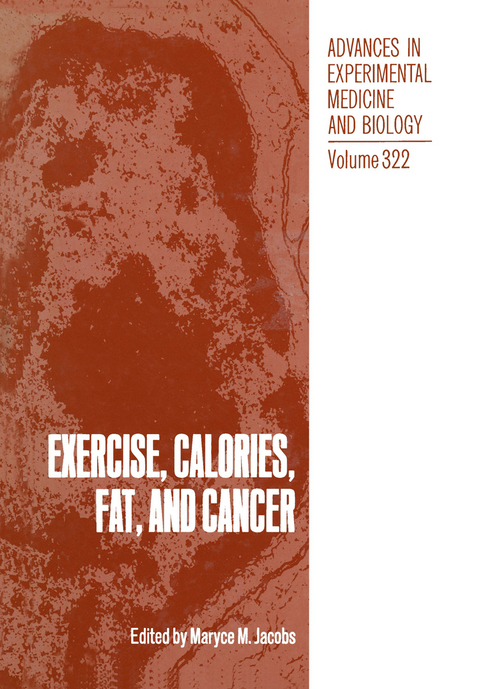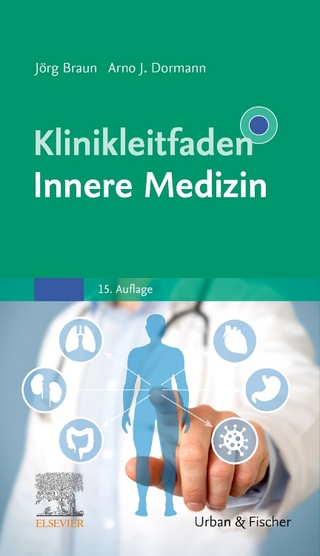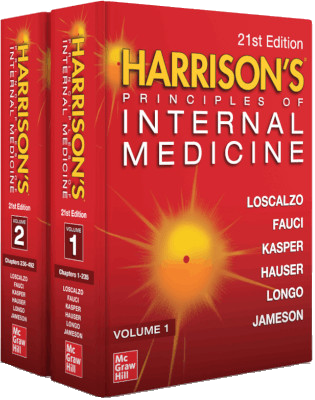
Exercise, Calories, Fat and Cancer
Springer-Verlag New York Inc.
978-1-4684-7955-3 (ISBN)
The American Institute for Cancer Research (AICR) sponsored its second annual conference on nutrition and cancer. The theme was "Exercise, Calories, Fat, and Cancer" and the conference was held September 4-5, 1991 at the Ritz Carlton Hotel in Pentagon City, Virginia. This proceedings volume contains chapters from the platform presentations and abstracts from each poster presentation. Relationships among physical activity, calorie consumption, energy expenditure, dietary fat, and cancer are described in the context of epidemiologic, animal, and in vitro studies. Dietary recommendations to lower cancer risk are based on expanding evidence relating nutrition and cancer. Identification of the precise dietary contribution to disease is complicated by the concurrent genetic and environmental contributions, in addition to the inherent difficulties in gathering and interpreting epidemiologic data. Individual variations in cancer risk are the result of differences in genetic and environmental factors including sources and amounts of calories consumed, metabolism, and energy expenditure. Human and animal studies describing independent and combined influences of exercise, calorie restriction, and dietary fat on carcinogenesis are reported in this volume.
1 Exercise, Calories, and Fat: Future Challenges.- I. Introduction.- II. Body Weight and Disease Risk.- III. Calories and Energy Expenditure.- IV. Food Composition Estimation and Evaluation.- V. Genetics, Diet, and Disease.- VI. Diets and Dietary Guidelines.- References.- 2 The Influence of Physical Activity on the Incidence of Site-Specific Cancers in College Alumni.- I. Introduction.- II. College Sports and Site-Specific Cancers.- III. Alumni Physical Activity and Site-Specific Cancers.- IV. Long-Term Physical Activity and Colon Cancer.- V. High Levels of Physical Activity and Prostate Cancer.- VI. Physical Activity and Breast Cancer Incidence.- VII. Conclusion.- References.- 3 Effects of Voluntary Exercise and/or Food Restriction on Pancreatic Tumorigenesis in Male Rats.- I. Introduction.- II. Materials and Methods.- III. Results.- IV. Discussion.- V. Summary.- References.- 4 Former Athletes Have a Lower Lifetime Occurrence of Breast Cancer and Cancers of the Reproductive System.- I. Introduction.- II. Subjects and Methods.- III. Results.- IV. Discussion.- References.- 5 Voluntary Exercise and Experimental Mammary Cancer.- I. Introduction.- II. The NMU Model.- III. The DMBA Model.- IV. The C3H/oµJ Mouse Mammary Tumor Model (MMTV).- V. The R13762 Metastasizing Mammary Tumor.- VI. Summary and Conclusions.- References.- 6 Effect of Amount and Type of Exercise on Experimentally Induced Breast Cancer.- I. Introduction.- II. General Comments on Methodology.- III. Presentation of Experimental Findings.- IV. Discussion.- V. Summary.- References.- 7 Modulation of Chemical Toxicity by Modification of Caloric Intake.- I. Introduction.- II. Animals and Diets.- III. Body Weight, Survival, and Pathology.- IV. Free Radical Detoxification.- V. Caloric Restriction and DrugMetabolism in the Liver.- VI. Chemical Carcinogenesis.- VII. Consequences for Human Nutrition.- VIII. Summary.- References.- 8 Calories, Fat, Fibers, and Cellular Proliferation in Swiss Webster Mice.- I. Introduction.- II. The Experimental Approach.- III. Dietary and Caloric Restriction.- IV. Fibers and Bulking Agents.- V. Fat.- VI. Overview.- VII. Summary.- References.- 9 Caloric Intake, Dietary Fat Level, and Experimental Carcinogenesis.- I. Introduction.- II. Fat Level, Energy Balance, and Cancer Incidence.- III. Discussion.- IV. Epilogue.- References.- 10 A Model System for Studying Nutritional Interventions on Colon Tumor Growth: Effects of Marine Oil.- I. Introduction.- II. Materials and Methods.- III. Results.- IV. Discussion.- V. Summary.- References.- 11 Enhancement of Pancreatic Carcinogenesis by Dehydroepiandrosterone.- I. Introduction.- II. Materials and Methods.- III. Results.- IV. Discussion.- References.- 12 Caloric Restriction and Experimental Carcinogenesis.- I. Introduction.- II. Caloric Restriction and Carcinogenesis.- III. Proposed Mechanisms for Inhibition of Tumorigenesis by Caloric Restriction.- References.- 13 Breast Cancer — The Optimal Diet.- I. Introduction.- II. The Evidence.- III. The Optimal Diet and Its Implementation in Clinical Practice.- IV. Summary.- References.- 14 Dietary Fat and Breast Cancer: Testing Interventions to Reduce Risks.- I. Introduction.- II. Possible Diet-Related Hypotheses.- III. Progress in Prospective Feasibility Studies to Date Testing the Fat Hypothesis.- IV. Unsettled Research Issues.- V. Future Directions.- References.- 15 Possible Mechanisms through which Dietary Lipids, Calorie Restriction, and Exercise Modulate Breast Cancer.- I. Introduction.- II. Dietary Lipids and Tumor Growth.- III. Energy Balance.- IV.Endocrine System.- V. Cytokines, Growth Factors, and Prostaglandins.- VI. Oncogenes.- VII. Modulation of Immune Function by Food Restriction and Physical Activity.- References.- 16 Dietary Fat, Calories, and Mammary Gland Tumorigenesis.- I. Introduction.- II. Amount of Dietary Fat and the Development of Mammary Tumors in Experimental Animals.- III. Type of Dietary Fat and the Development of Mammary Tumors in Experimental Animals.- IV. Dietary Fat and the Metastasis of Mammary Tumor Cells in Experimental Animals.- V. Dietary Fat and Calories in Mammary Tumor Development in Experimental Animals.- VI. Dietary Fat and the Growth of Human Breast Carcinomas Maintained in Immune-Deficient Mice.- VII. Summary.- References.- 17 Dietary Fat and Breast Cancer: A Search for Mechanisms.- I. Introduction.- II. Overview: Dietary Fat and Breast Cancer in Rodents.- III. Dietary Fat and Breast Cancer in Humans.- IV. Mechanisms of Action.- V. Conclusion.- References.- 18 Selected Recent Studies of Exercise, Energy Metabolism, Body Weight, and Blood Lipids Relevant to Interpretation and Design of Studies of Exercise and Cancer.- I. Introduction.- II. Factors that Influence Intake and Utilization of Calories.- III. Exercise and Blood Lipids.- IV. Endocrine Responses to Exercise.- V. Conclusion.- References.- Poster Abstracts.
| Reihe/Serie | Advances in Experimental Medicine and Biology ; 322 |
|---|---|
| Zusatzinfo | 32 Illustrations, black and white; 318 p. 32 illus. |
| Verlagsort | New York, NY |
| Sprache | englisch |
| Maße | 178 x 254 mm |
| Themenwelt | Medizin / Pharmazie ► Gesundheitsfachberufe ► Diätassistenz / Ernährungsberatung |
| Medizinische Fachgebiete ► Innere Medizin ► Diabetologie | |
| Medizin / Pharmazie ► Medizinische Fachgebiete ► Onkologie | |
| Studium ► 2. Studienabschnitt (Klinik) ► Pathologie | |
| Studium ► Querschnittsbereiche ► Infektiologie / Immunologie | |
| Naturwissenschaften ► Biologie ► Biochemie | |
| ISBN-10 | 1-4684-7955-5 / 1468479555 |
| ISBN-13 | 978-1-4684-7955-3 / 9781468479553 |
| Zustand | Neuware |
| Haben Sie eine Frage zum Produkt? |
aus dem Bereich


